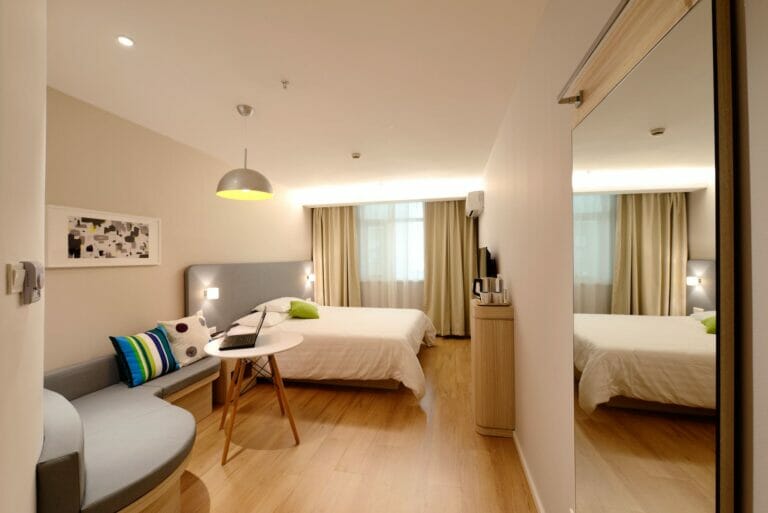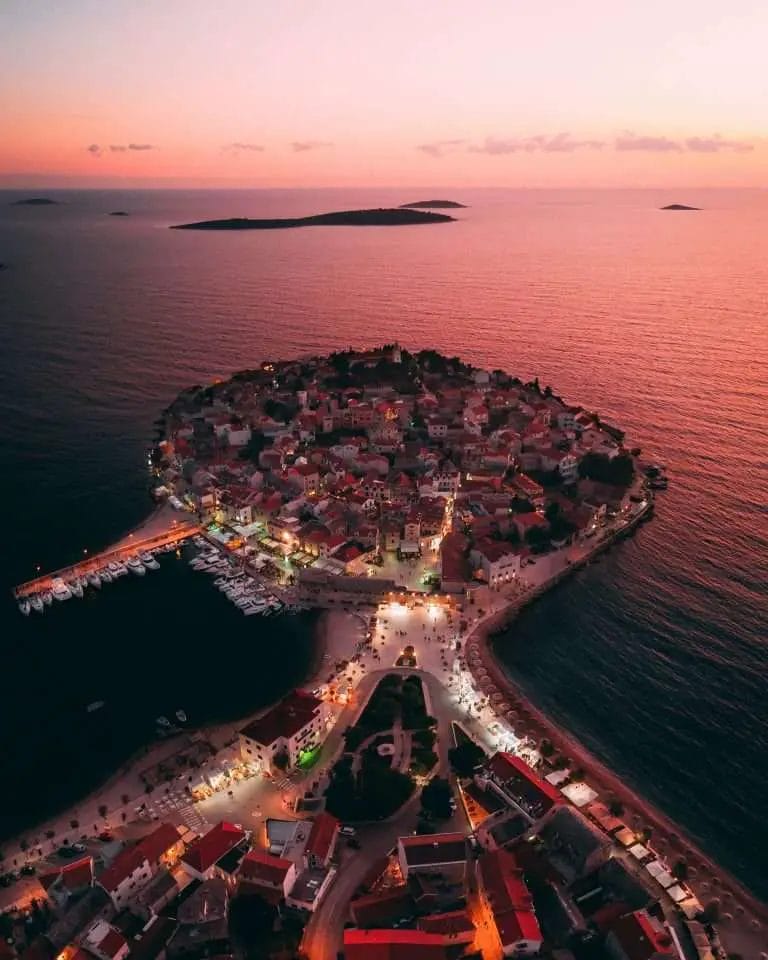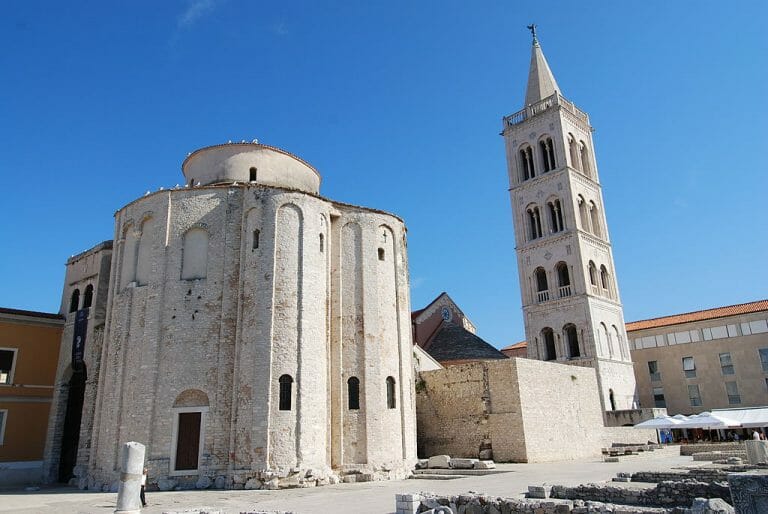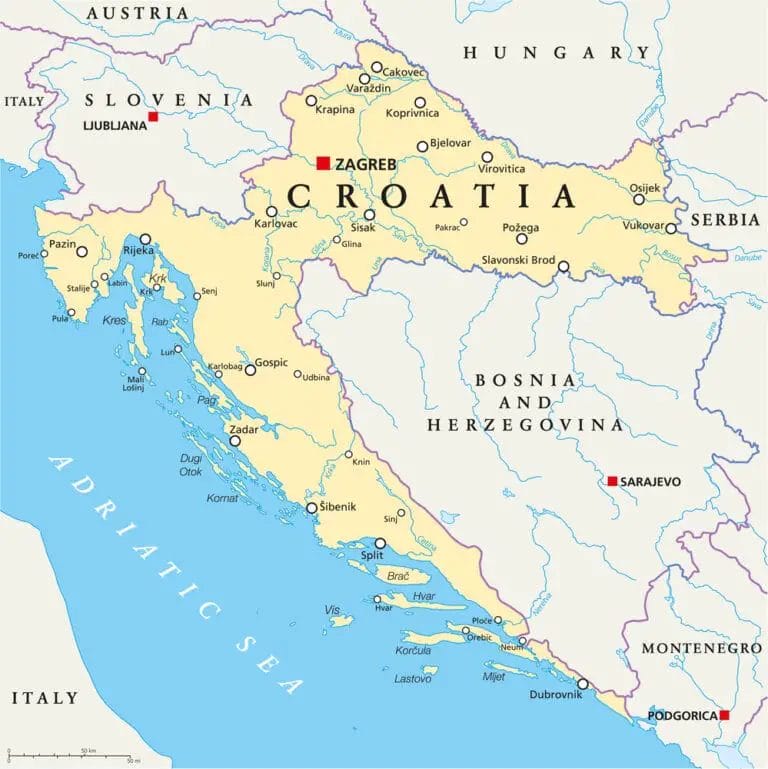How to Say Cheers in Croatian and Impress Locals in Croatia
So you are already planning your trip to Croatia and wondering How to Say Cheers in Croatian to make some new Croatian Friends during your Wine Tasting Tour in Croatia.
Well, I have got you covered on this point, and yes it works. There is something about talking in local language when you are visiting a new country. You tend to make friend quiet easily.
Croatia, with its stunning coastline, rich history, and vibrant culture, is a popular travel destination. Learning the local language can greatly enhance the travel experience, and one of the easiest ways to connect with locals is by learning how to say “cheers” in Croatian.
By understanding the traditional drinks, drinking etiquette, and the impact of speaking the local language, you can create memorable moments and make lasting connections during their time in Croatia.
Let us dive in now!
How to Say Cheers in Croatian
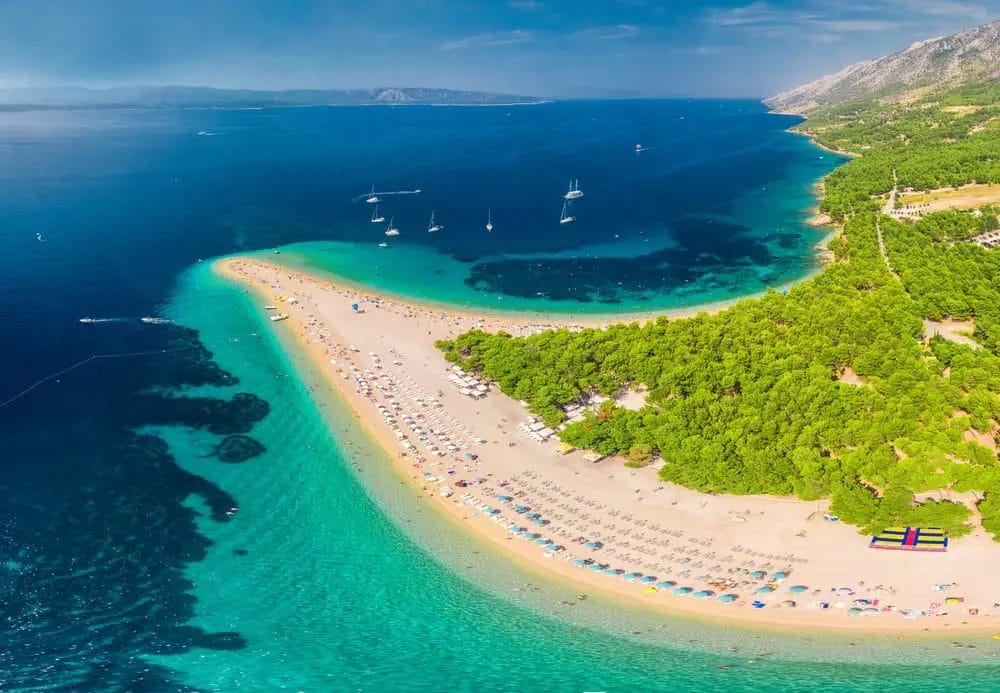
When visiting a new country, it’s always polite to make an effort to learn some basic words in the local language. In Croatia, the official language is Croatian, and while English is widely spoken in tourist areas, using a few Croatian words can definitely impress the locals. Understanding how to say “cheers” in Croatian is a good place to start.
The word “cheers” in Croatian is pronounced as “živjeli” (zhee-vye-lee).
You can listen to the pronunciation of Cheers by clicking below
Learn Basic Croatian Words
Before delving into the specific cheers’ phrases, it’s useful to familiarize oneself with some basic Croatian words. Greetings like “hi” and “good day” (or “dobar dan” in Croatian), along with expressions of thanks such as “thank you” (“hvala”), can go a long way in making a positive impression.
Popular Croatian Cheers
In Croatia, the most common way to say “cheers” is by using the word “živjeli.” This word is often accompanied by a raising of glasses and making eye contact when toasting. Understanding this tradition shows respect for the local culture and helps to create a moment of camaraderie with new friends and acquaintances.
Etiquette for Saying Cheers in Croatia
When sharing a drink with locals in Croatia, it’s important to observe the proper etiquette. Making eye contact, clinking glasses, and saying “živjeli” in a respectful manner are customary. Also, it’s always good to pace oneself and not get too intoxicated, as moderation is valued in Croatian drinking culture.
What Are the Traditional Croatian Drinks?
Croatia is known for its diverse range of traditional drinks, each reflecting the country’s rich cultural heritage and unique regional influences.
National Drinks of Croatia
Rakija, a strong fruit brandy, holds a special place in Croatian tradition and is often shared among friends and family as a symbol of celebration and camaraderie. It is a quintessentially Croatian spirit and should definitely be experienced by visitors to the country.
Recommended Croatian Alcoholic Drinks
Croatia’s wine production is well-regarded, and the country offers a wide selection of high-quality wines that are worth exploring. In addition, the local beer is also popular and is a great choice for those looking to enjoy a refreshing beverage while taking in the sights and sounds of Croatia.
Specialty Wines and Beers in Croatia
With the various wine regions and craft breweries, there are many different options to consider. Whether it’s the robust red wines of Dalmatia or the crisp lagers from Zagreb, there’s something to suit every taste in Croatia.
Where to Enjoy a Drink in Croatia
From bustling urban centers to scenic coastal towns, Croatia offers a range of settings to enjoy a drink and soak in the local atmosphere.
Best Bars in Zagreb
Zagreb, the capital city, is home to numerous bars and cafes where locals and visitors alike can savor a drink while taking in the city’s vibrant ambiance. Whether looking for a trendy cocktail bar or a traditional tavern, there’s a spot for everyone in Zagreb.
Zagreb, the capital city of Croatia, offers a vibrant nightlife scene with a variety of bars to choose from. Here are some highly recommended bars in Zagreb:
Please note that the bar scene in Zagreb is dynamic, and new establishments may emerge while others may change or close. It’s always a good idea to check for the latest reviews and recommendations before visiting.
Popular Drinking Spots in Coastal Croatia
The coastal regions of Croatia, including popular destinations like Split and Dubrovnik, offer numerous opportunities to enjoy a drink with breathtaking views of the Adriatic Sea. Whether it’s a seaside bar or a quaint café tucked away in the old town, the atmosphere is sure to enhance the overall experience.
Drinking Etiquette in Croatian Restaurants
When dining out in Croatia, it’s important to be aware of the drinking etiquette in restaurants. It’s polite to wait for a toast before taking a sip of the beverage, and always be sure to express gratitude and acknowledge the company before enjoying the drink.
How to Say Cheers in Croatian to Impress Locals
Speaking the local language, even if just a few words, can demonstrate interest and respect for the culture and traditions of Croatia. When interacting with locals, knowing how to say “cheers” in Croatian can lead to meaningful interactions and lasting memories.
Polite Ways to Say Cheers in Croatian
Adding “molim vas” (please) before saying “živjeli” is a courteous way to invite others to join in the toast. This simple gesture is appreciated by locals and presents an opportunity for cultural exchange and bonding.
Using the word “Živjeli” for Cheers
The word “živjeli” not only means “cheers” but also embodies the sentiment of health, happiness, and prosperity. By uttering this word in the Croatian language, one can express well wishes and positive energy, further contributing to the warmth of the moment.
Impact of Saying Cheers in Croatian
When travellers take the time to learn and utilize Croatian phrases such as “živjeli” during social interactions, it shows a genuine interest in connecting with the local culture. This effort is often met with appreciation and can lead to friendly conversations, new acquaintances, and invitations to partake in local customs and traditions.
How do you ask for beer in Croatian?
Okay, I am pretty sure you need to know how to ask for beer in Croatian as well before learning about Cheers.
To ask for a beer in Croatian in a polite manner, you would say “Mogu li dobiti pivo, molim?” which translates to “Can I have a beer, please?” If you’re in a casual setting, you could also say “Molim vas jedno pivo,” which means “One beer, please”.
Croatian is a language where politeness is appreciated, so using “molim” (please) is a good practice. The word for beer in Croatian is “pivo,” so when you’re at a bar or restaurant, saying “Molim vas jedno pivo” will convey your request effectively and courteously.
Learning the Croatian Language for Cheers
Understanding and speaking the Croatian language opens doors to deeper cultural immersion and meaningful connections with locals.
Basic Croatian Greetings and Phrases
Beyond knowing how to say “cheers,” learning other basic Croatian greetings and phrases, such as “hello” (“bok”) and “thank you” (“hvala”), can enhance everyday interactions and convey respect for the local language and customs.
Useful Words When Ordering a Drink in Croatian
When ordering a drink in Croatia, it’s useful to know words related to the type of beverage being ordered, as well as expressions such as “one beer, please” (“jedno pivo, molim”). This can facilitate smooth communication and make the dining experience more enjoyable.
Benefits of Learning Croatian for Social Interaction
By learning Croatian, travelers can engage in more meaningful and authentic interactions with locals during their stay in Croatia. Being able to share a few words in the local language opens the door to a deeper understanding of the country’s culture and creates opportunities for connections that can last far beyond the duration of the trip.
Conclusion: How To Say Cheers in Croatian
Now you already know that živjeli is how you say cheers in Croatian, So now you are ready to eat a meal with Croatians on your next trip.
With this knowledge in mind, have a good trip, and Živjeli!
If you want to know more about this topic in this region, check out my post about saying cheers in Hungarian.
FAQs:
Q: What are some common customs related to toasting in Croatia?
A: In Croatia, toasting is an important social gesture. When someone offers a toast, it’s customary to make direct eye contact and clink glasses individually with every person present.
Q: Are there any specific occasions or events in Croatia where toasting is particularly important?
A: Toasting holds significant cultural importance in Croatia and is common at various events, including weddings, birthdays, holidays, and gatherings with friends and family.
Q: Can you provide some tips on the proper etiquette for toasting in Croatia?
A: When toasting in Croatia, it’s important to raise your glass slightly, make direct eye contact, and say “zdravlje” before taking a sip. It’s also considered polite to toast the health and happiness of everyone present.
Q: What should I keep in mind when toasting with alcohol in public in Croatia?
A: While it’s common to toast with alcohol in public settings in Croatia, it’s important to do so respectfully and in moderation. Always be mindful of the local laws and cultural norms when consuming alcohol in public.
Q: In what ways can saying “cheers” in Croatian enhance my experience in the country?
A: Learning to say “cheers” in Croatian and understanding the associated customs can greatly enhance your cultural experience in Croatia. It shows respect for local traditions and can help you connect with the people you meet.
Q: Is there a particular spirit or type of alcohol that is commonly used for toasting in Croatia?
A: Rakija, a fruit-based brandy, is often used for toasting in Croatia. It’s considered a symbol of hospitality and is commonly enjoyed during social gatherings and celebrations.
Q: What are some other ways to express good wishes or happiness in Croatian culture?
A: In addition to saying “zdravlje” when toasting, you can also express good wishes by using phrases like “sretno” (good luck) and “živjeli” (let’s live). These phrases are often used to convey happiness and well-wishes in Croatian culture.
Q: Are there any particular regions in Croatia where toasting customs may vary?
A: While toasting customs are generally consistent throughout Croatia, you may find regional variations in certain areas. For example, the Istrian region may have specific toasting traditions that differ from other parts of the country.
Q: What are some key phrases or expressions I should remember when toasting in Croatia?
A: It’s important to remember the phrase “zdravlje” for toasting, and you can also use expressions like “na zdravlje” (to your health) and “živjeli” (let’s live) to join in the celebratory spirit. Learning these phrases can enhance your interactions and make you feel more connected to the local culture.

